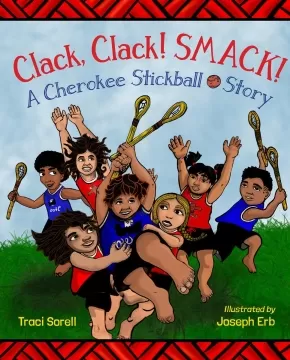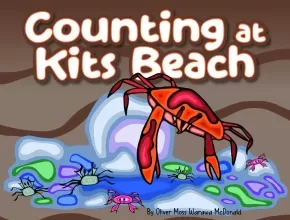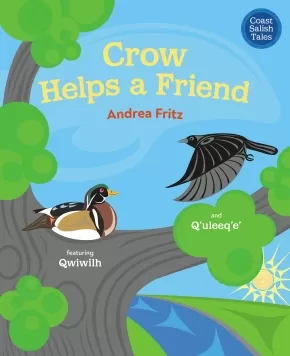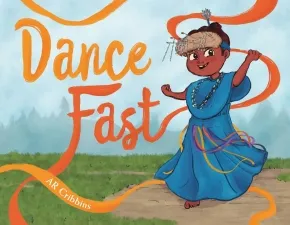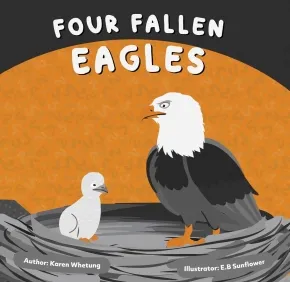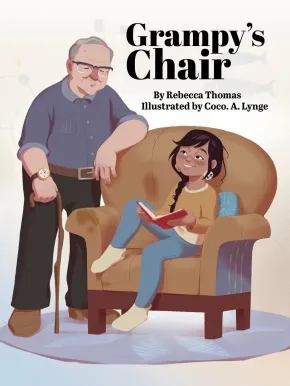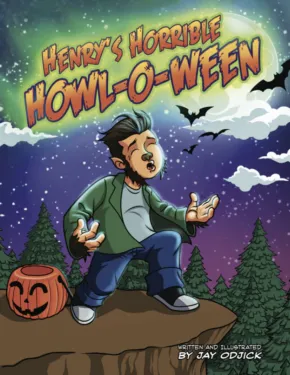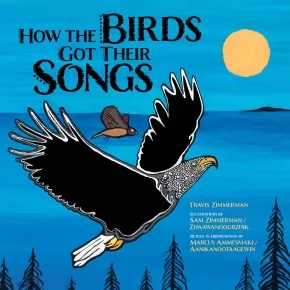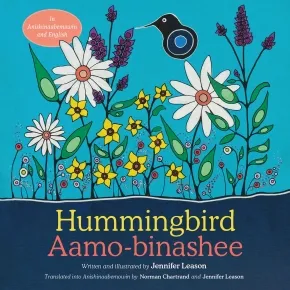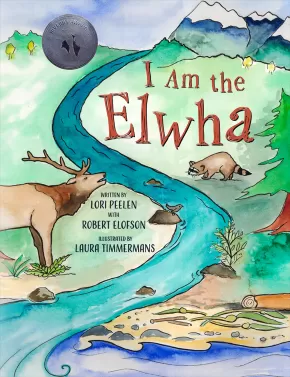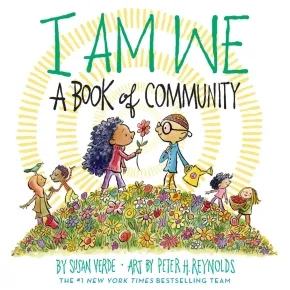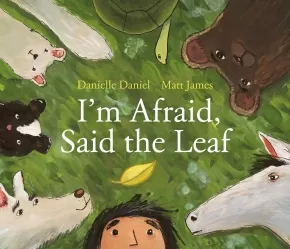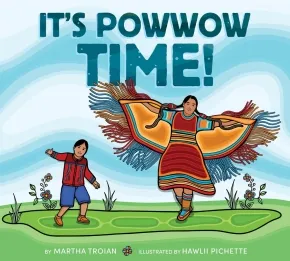
Picture Books
91
-
105
of
753 Results;
Sort By
Go To
of 51
Clack, Clack! Smack! A Cherokee Stickball Story
$21.99
Artists:
Format:
Hardcover
Text Content Territories:
Indigenous American; Native American; Cherokee; Cherokee Nation (Cherokee Nation of Oklahoma);
ISBN / Barcode: 9781623541934
Synopsis:
Synopsis:
Vann, a struggling stickball player, competes in a game on the Cherokee Nation. Can he help his team win? Written by award-winning Cherokee author Traci Sorell.
Vann loves playing his tribe’s stickball game, but he’s not as skilled as his teammates. Vann stumbles, and he tries and fails to score. How can he help his teammates win?
Exciting and fast-paced, Clack, Clack! Smack! reminds readers that sportsmanship and being a team player is just as important as being the star. Back matter explains the origins of Cherokee stickball.
Reviews
"Two Cherokee teams play a game of stickball in Tahlequah, Oklahoma. Vann feels insecure about having missed a key shot in last week’s match. “Stickball requires speed,” after all, and his “towering body” won’t cooperate. As Vann and his team, the Eagles, take to the field against the Redhawks, they “zip,” “chase,” and “rush” for the ball, their wooden sticks clashing with a “CLACK, CLACK!” Coach gives the team a pep talk in Tsalagi, the Cherokee language. He reminds them of gadugi, the importance of working together. As the players return to the field to finish the game, Vann’s best friend, Jesse, gives him an encouraging smile. The game is now tied. Can Vann and his team win? Sorell and Erb, both members of the Cherokee Nation, deliver an uplifting story of team spirit and collaboration; the emphasis is on group triumphs rather than individual victories. Writing in terse, alliterative prose—“a tackle, a twist, and a wrong turn”—Sorell skillfully builds tension as she choreographs this action-packed game. Erb’s thick-lined cartoon illustrations have a pleasing solidity; they capture the chaos and drama of the game and depict players with a range of brown skin tones. The story features frequent Tsalagi words and phrases. Backmatter stresses the importance of keeping the Cherokee language alive and explains the significance of stickball, which traditionally was used to settle conflicts. Stand and cheer for this fast-paced tale of sportsmanship and community." —Kirkus Reviews
Educator Information
Recommended for ages 4 to 7.
Additional Information
32 pages | 8.38" x 10.31" | Hardcover
Counting at Kits Beach (BB)
$15.00
Artists:
Format:
Paperback
Text Content Territories:
Indigenous Canadian; First Nations; Cree (Nehiyawak);
ISBN / Barcode: 9781928120438
Synopsis:
Synopsis:
Learning to count is easy and fun with Counting at Kits Beach. Follow Oliver McDonald’s delightful and colourful pictures, which count various beings at Kits (Kitsilano) Beach, Vancouver. The images begin at ten and count down to one, the last being the sunset. Then come back to Kits Beach and watch and count again. Children ages three to six will love Counting at Kits Beach!
Educator Information
Recommended for ages 3 to 6.
Additional Information
24 pages | 8.00" x 6.50"
Crow Helps a Friend
$21.95
Artists:
Format:
Hardcover
Text Content Territories:
Indigenous Canadian; First Nations; Salish; Coast Salish; Lyackson ;
ISBN / Barcode: 9781459836242
Synopsis:
Synopsis:
Mistakes can be an opportunity for growth.
Indigenous artist and storyteller Andrea Fritz tells the tale of a wood duck and a crow who turn a mistake into an opportunity for friendship and growth.
Qwiwilh the wood duck is preparing to nest in his favorite tree when Q'uleeq'e' the crow invites him to play in the tall branches. They jump higher and higher up the tree until they accidentally break the branches and come crashing down into the stream below. After a daring rescue, Qwiwilh sadly realizes his nesting spot is gone, and Q'uleeq'e' decides to make things right for her new friend.
In this original story set in Coast Salish Traditional Territory, author and artist Andrea Fritz uses Indigenous storytelling techniques and art to share the culture and language of the Hul’q’umi’num’-speaking Peoples. This is the second book in the Coast Salish Tales, following Otter Doesn't Know.
Educator & Series Information
Recommended for ages 6 to 8.
This is the second book in the Coast Salish Tales series, following Otter Doesn't Know.
Recommended in the Indigenous Books for Schools catalogue as a valuable resource for English Language Arts and Art in K to Grade 3.
Themes: Animals, Art, Community, Connectedness to Nature, Respect, Language, Relationships, Traditional Knowledge
Additional Information
32 pages | 8.75" x 10.75" | Hardcover
Dad, I Miss You
$22.95
Artists:
Format:
Hardcover
Text Content Territories:
Indigenous Canadian; Inuit;
ISBN / Barcode: 9781772274820
Synopsis:
Synopsis:
Told in the voice of a boy and his father by turns, this book takes a thoughtful and heartfelt look at the emotional toll of a child being taken from their family and community to attend residential school.
While the child’s internal monologue expresses his fear, confusion, and loss, the father’s monologue conveys his own sadness, fears, and hopes for the future of his child. The narrative gives voice to the things left unsaid between a parent and child experiencing this heart-rending separation. Upon his return to his community, when father and son are reunited, they must start the long process of reconnection.
Based on the author’s family history of residential school separation, this book provides a unique perspective on the difficult cycle of loss, reconnection, and regaining hope for the future.
Educator Information
Recommended for ages 9 to 12.
Additional Infroamtion
40 pages | 9.00" x 8.00" | Hardcover
Dance Fast
$24.99
Artists:
Text Content Territories:
Indigenous American; Native American; Pomo;
ISBN / Barcode: 9780316539388
Synopsis:
Synopsis:
This charming and humorous book celebrates Pomo traditions and explores creative frustration, perfectionism, and the value in embracing your mistakes.
I want to dance!
Bizzy can't wait to dance with all her friends and family at the summer gathering this year! But first, she must make the perfect regalia. It's tricky work, even with a grown-up's help, and her high expectations come crashing down in a flurry of torn fabric, loose beads, and tears. With support from her mom, grandma, and little brother, can Bizzy learn to see past the flaws, finish her work, and remember what's really important?
AR Cribbins celebrates Pomo traditions in this charming and humorous tale about creativity and perfectionism.
Reviews
“The illustrations are bright and energetic and mirror Bizzy’s emotional undulations.”—Booklist
“The many emotions of all the characters are wonderfully encapsulated in the imagery through collage and comic book–style cartoons…. This book teaches in a safe, digestible story that accidents happen, emotions will rise, but having support can help repair the situation smoother than attempting to fix it with those immediate big feelings.”—School & Library Journal
“A vibrantly illustrated life lesson.”—Kirkus
Educator Information
Recommended for ages 4 to 8.
Additional Information
40 pages | 8.80" x 11.40" | Hardcover
Four Fallen Eagles
$19.99
Artists:
Format:
Hardcover
Text Content Territories:
Indigenous Canadian;
ISBN / Barcode: 9781778540431
Synopsis:
Synopsis:
Wanting to belong can be hard, and walking away can be even harder.
When a storm plucks four eaglets from their nest to the forest floor, the displaced eaglets proceed on a journey across Turtle Island to rediscover where they belong. One by one, the eaglets encounter communities of creatures who claim them. Will these lost eaglets grow the courage needed to soar in their truths?
Inspired by the Students and Communities she has worked with, Nishinaabe author Karen Whetung shares an allegory of survivance and the desire to tell our stories, share our truths, and claim our place in the world in Four Fallen Eagles.
Educator Information
Recommended for ages 7 to 10.
Additional Information
32 Pages | 9" x 9" | Hardcover
Grampy's Chair
$23.99
Artists:
Format:
Hardcover
Text Content Territories:
Indigenous Canadian; First Nations; Mi'kmaq;
ISBN / Barcode: 9781773219189
Synopsis:
Synopsis:
A heartwarming story about lifelong love and loss told from the perspective of a grandfather’s favorite chair.
Grampy’s chair sits in the middle of his living room and always keeps an eye on My Love. The Chair is the perfect spot for My Love to learn to read, to play games with her friends, and The Chair is always extra soft when My Love is sick. As My Love grows up, The Chair sees Grampy grow older and My Love must care for him. One day Grampy is gone, and The Chair is moved to a space with only a few things it recognizes (and a few spiders too). Will it see My Love again?
In this poignant story inspired by her own grandfather and his chair, Rebecca Thomas invites readers of all ages to explore love, grief, and the important moments in life that take place in our favorite spots. With lively illustrations from Coco A. Lynge and featuring a heartfelt author’s note, Grampy's Chair takes the readers through loss, and how we can be found again by the ones we love.
Educator Information
Recommended for ages 4 to 7.
Additional Information
36 pages | 7.65" x 10.25" | Hardcover
Henry's Horrible Howl-O-Ween
$19.99
Artists:
Format:
Paperback
Text Content Territories:
Indigenous Canadian;
ISBN / Barcode: 9781779510037
Synopsis:
Synopsis:
Henry’s favourite time of year is Halloween! He is ready to go out and trick-or-treat on the rez in his brand new werewolf costume. He loves his costume so much he wishes he was a real werewolf. But, when his wish comes true, he slowly begins to realize he may have made the wrong decision….
Additional Information
24 Pages | Paperback
How the Birds Got Their Songs
$25.00
Format:
Hardcover
Text Content Territories:
Indigenous American; Native American; Anishinaabeg; Ojibwe (Chippewa); Grand Portage Band of Lake Superior Chippewa;
ISBN / Barcode: 9781681342856
Synopsis:
Synopsis:
The Great Spirit challenges all the birds to a contest, and the gift of birdsong is born! This traditional story, told in both English and Ojibwe, explains bird behavior and where humans should go to hear the prettiest of birdsongs.
When Mother Earth was very young and the Great Spirit had created all the beings, he noticed how quiet everything was. As he walked about the earth, listening to the sounds of the animals and the wind and the waters, some birds flying by caught his eye. He knew immediately what he needed to do.
The Great Spirit held a contest so that each bird could earn the song that was just right for its species. He called together all the birds, from the smallest sparrow to the largest hawk, and told them the plan. Each would fly as high in the sky as it could, and when it returned to Mother Earth it would receive its song.
Eagle was certain his strong wings would help him fly highest of all and earn the prettiest song. But he did not know that, while the Great Spirit was talking, the tiny hermit thrush had snuggled into eagle's feathers to take a nap.
All the birds flew and flew, higher and higher, each descending when it was time to return—and each receiving its own special song. But which bird flew the highest? Which one received the prettiest song?
This treasured story, handed down through author Travis Zimmerman's family, features traditional knowledge from the Grand Portage Band of Lake Superior Chippewa. Grand Portage descendant Sam Zimmerman's vibrant illustrations showcase his stylized artistry and deep appreciation for feathered creatures. Marcus Ammesmaki's retelling in Ojibwemowin brings the story full circle, encouraging language learners to explore this age-old depiction of our natural world—and inviting all readers to cherish the gift of birdsong.
Educator Information
Recommended for ages 3 to 7.
Dual-Language: English and Ojibwe.
Retold in Ojibwemowin by Marcus Ammesmaki / Aanikanootaagewin. Marcus is a K/1 teacher at Waadookodaading Ojibwe Language Institute in Hayward, Wisconsin.
Additional Information
32 pages | 10.00" x 10.00" | Hardcover
Hummingbird / Aamo-binashee
$21.95
Artists:
Format:
Hardcover
Text Content Territories:
Indigenous Canadian; First Nations; Anishinaabeg;
ISBN / Barcode: 9781459837140
Synopsis:
Synopsis:
You never walk alone.
Remember the hummingbird's teachings. Remember you are loved.
Kokum warned us to watch out for one another. If we weren't careful, Windigo would eat us. But one night, alone in the darkness, I felt its breath on my neck. Windigo's lies crept into my heart, and I believed them. When we lose connection with others, we lose ourselves, and Windigo's darkness grows and spreads.
In this deeply emotional and beautifully illustrated picture book, the ancestors send a hummingbird to a child lost in Windigo’s darkness. Its teachings of resilience, love and connection bring the child home and remind us that our ancestors are always watching and can help us find our way if we only ask.
This bilingual book includes full text in both English and Anishinaabemowin.
Educator Information
Recommended for ages 6 to 8.
Fountas & Pinnell Text Level Gradient: U
Lexile measure: 520L
Guided Reading Level: U
Dual-Language: English and Anishinaabemowin
There are many dialects fo Anishinaabemowin, and this book presents a phonetic spelling of the language as learned by the author and co-translator in Duck Bay, northeastern Manitoba. This dialect is sometimes referred to as Western Ojibwa, Nakawemowin, Saulteaux or Plains Ojibwa. Translated by Norman Chartrand and Jennifer Leason.
This beautifully illustrated story expresses hope, healing and reclamation of Indigenous strength and identity in the wake of oppression and trauma.
Additional Information
32 pages | 8.00" x 8.00" | Hardcover
I Am the Elwha (PB)
 $14.95
$14.95

Artists:
Format:
Paperback
Text Content Territories:
Indigenous American; Native American; Salish; Coast Salish; Klallam (Clallam); Lower Elwha Klallam Tribe;
ISBN / Barcode: 9781771746311
Synopsis:
Synopsis:
"I am the Elwha, rushing down to the sea. I am the Elwha, wild and free."
The Elwha River flows 72km (45 miles) from its source in the Olympic Mountains to the Strait of Juan de Fuca in the Pacific Northwest. Uniquely, it hosts all six salmon species (Pink, Chinook, Coho, Sockeye, Steelhead, and Chum) as well as several species of trout.
In 1911, two dams were built on the river. The dams blocked the migration routes of the salmon and dramatically altered the entire river ecosystem for 100 years. In 2012, the dams were decommissioned and the world's largest dam removal and habitat restoration project began. In this lyrical and beautifully illustrated book, the author chronicles the history of the Elwha.
Narrated by the powerful voices of plants and animals that inhabit the river ecosystem, the dam builder, a worker, members of the Klallam Tribe, and the river itself, this story celebrates the ongoing rewilding of this special environment and offers a welcome to all the creatures who are coming home.
To learn more visit: www.elwha.org
Awards
- 2021 Riverby Award for Young Readers
Reviews
"It can be tough for kids and adults to truly comprehend the impact of industrial development on nature because species and ecosystems can’t talk. If they could, what would they say? I Am the Elwha answers this question. About a century ago, the Elwha River in Washington State was blocked by a pair of dams that prevented salmon from spawning and caused populations to crash. In 2012, the first dam was demolished, followed by the second in 2014. The river rushed to the sea and habitat is slowly being restored. In I Am the Elwha, we hear from the river, lake, trees and animals about the impact of the dams and their removal. We also hear from the man who built the dam, the man who operated it, and members of the Lower Elwha Klallam Tribe. In lyrical, rhythmic poetry, all of the players share their perspectives. “My people return, and my creatures and trees,” the river says in celebration. “I rush out to greet them: Welcome my children / welcome home, welcome home!” Colorful illustrations capture the pain of losing one’s home and the joy of having it rightfully returned. I Am the Elwha is a powerful read about a powerful river and those who value and protect it." - Raina Delisle, Hakai Magazine
Educator Information
Recommended for grades 3 to 7.
At the back of the book are three pages of cultural, scientific, and historical information that discuss the following:
- the importance and symbolism of salmon to the Lower Elwha Klallam Tribe and other Coastal Salish Tribes
- facts about the six species of salmon found in the Elwha River (Chinook, Pink, Chum, Sockeye, Coho, and Steelhead)
- the history of the Elwha River and its status today
Keywords / Subjects: The Elwha River, Rivers, Dams, History, Environmental Awareness, Lower Elwha Klallam Tribe, Coast Salish, Native American, Culture, Washington, Animals, Salmon, First Salmon Ceremony, Plants, Nature, Settlers, Social Responsibility, Environmental Activism, Poetry.
Additional Information
32 Pages | 8.5" x 11" | ISBN: 9781771746311 | Second Edition | Paperback
Authenticity Note: This lyrical story, which chronicles the history of the Elwha River, is written by Lori Peelen. Robert Elofson, Tribal Elder and Harvest Manager in the Natural Resources Department for the Lower Elwha Klallam Tribes, approved Lori's work and contributed pages of back matter at the end of the work. Lori's story was further approved by Frances Charles, the Tribal Councilwoman for the Lower Elwha Klallam Tribe, after the entire council read and approved it.
The Canadian Content label has been applied because the illustrator of this work is Canadian.
I Am We: A Book of Community
$19.99
Artists:
Format:
Hardcover
ISBN / Barcode: 9781419771941
Synopsis:
Synopsis:
Cultivate connection and kindness in author Susan Verde’s and Peter H. Reynolds’s I Am We.
Connected is what we are:
part of a world-wide community,
diverse and magnificent, kind and accepting, supportive and present.
All of us important, none of us alone.
Sometimes we may wonder, how does caring for ourselves help anyone else? But then we realize that the better we feel inside, the more we can be there for others—our friends, families, and communities. We are part of something bigger than ourselves, and when we each turn our goodness and compassion outward, we can create, learn, and love.
Whether it’s listening to a friend, welcoming newcomers with open arms, or standing up against injustice, I Am We shows us what true community looks like—and the amazing things that can happen when we come together.
Inside you’ll also find exercises for building community.
Reviews
"Verde’s contemplative text sets a tone at once musing and affirming, while Reynolds’ cartoon illustrations visualize the concepts in practical ways, grounding readers in colorful and emotive images. A genuine call to action paired with sincere reflection." — Kirkus Reviews
Educator Information
Recommended for ages 4 to 8.
Additional Information
32 pages | 8.00" x 8.00" | Hardcover
I'm Afraid, Said the Leaf
$24.99
Artists:
Format:
Hardcover
ISBN / Barcode: 9781774880708
Synopsis:
Synopsis:
A touching, playful exploration of empathy and interdependency from an acclaimed author and illustrator.
I’m afraid, Said the leaf. / You’re not alone, Said the tree. But who will comfort a nervous bird, a lonely crab, a lost wolf? How can a horse find warmth, a snail some cheer, a child some rest? Through a series of amusing and soothing exchanges, this deceptively simple and profound picture book depicts different pairings to celebrate interconnectedness and underlines the importance of caring for every living organism to ensure a strong and healthy natural world.
I’m Afraid, Said the Leaf invites young readers to understand that we all need each other for support and survival — and that we're all stronger together.
Reviews
"Every worry is addressed and every need is met in this eloquent portrait of the interconnectedness of the living world." —STARRED REVIEW, Publishers Weekly
"[T]he art renders the tale truly universal." —Kirkus Reviews
"[A] good picture book about kindness and how all species are interconnected and depend on each other "to exist and thrive in harmony."" —Metroland
Educator Information
Recommended for ages 3 to 7.
Additional Information
64 pages | 10.88" x 9.31" | Hardcover
It Bears Repeating
$23.99
Artists:
Format:
Hardcover
Text Content Territories:
Indigenous Canadian; Inuit;
ISBN / Barcode: 9781774880555
Synopsis:
Synopsis:
This beautifully crafted picture book celebrates one of the world's most awesome animals: the polar bear. Evocative but simple text by award-winning musician and artist Tanya Tagaq is accompanied by striking art in this classic counting book.
Beginning with 1 proud polar bear standing tall and ending with 10 bears waving goodbye, this delightful counting book shows polar bears in all their forms: slippery and fast, crafty and cool, hungry and proud. Tanya has created a story meant to be read aloud, incorporating simple Inuktitut words and using her keen ear for the musical sound of language.
This book is joyful, powerful, clever and striking — much like the bears who sniff, slide, swim, hunt, play and dance through its pages. And when you get to the last page, you won't be able to resist going back to repeat the journey!
Educator Information
Recommended for ages 3 to 7.
Concepts: Counting & Numbers; Animals - Polar Bears.
This book is meant to be read aloud and incorporates simple Inuktitut words.
Additional Information
24 pages | 10.50" x 9.00"
It's Powwow Time!
$24.99
Artists:
Format:
Hardcover
Text Content Territories:
Indigenous Canadian; First Nations;
ISBN / Barcode: 9780063116665
Synopsis:
Synopsis:
This lyrical and joyful picture book celebrates new experiences and community traditions when a young boy learns to dance at his first powwow. It’s Powwow Time! is for readers of Cynthia Leitich Smith’s Jingle Dancer and Oge Mora’s Thank You, Omu!
Bineshii is looking forward to his first powwow. He wakes up and travels with his mother to the community event. He eats bannock and drinks strawberry juice as he watches the dancers perform. And ever so slowly, Bineshii works his way from the edge of the circle watching the dancers to inside the circle itself, dancing and celebrating with everyone else.
Award-winning journalist Martha Troian’s child-centered text and Hawlii Pichette’s action-packed illustrations build excitement on the page as Bineshii’s curiosity and confidence grows. It’s Powwow Time! explores the rewards of being open to new experiences while also serving as a beautiful and informative introduction to a First Nations powwow.
Educator Information
Recommended for ages 4 to 8.
Keywords/Themes: Early Years (Body and the Senses); Powwows; Self-Esteem; Dance; New Experiences.
This book is a wonderful read-aloud.
Includes an author's note about powwows.
Additional Information
32 pages | 10.00" x 9.00"
Sort By
Go To
of 51

